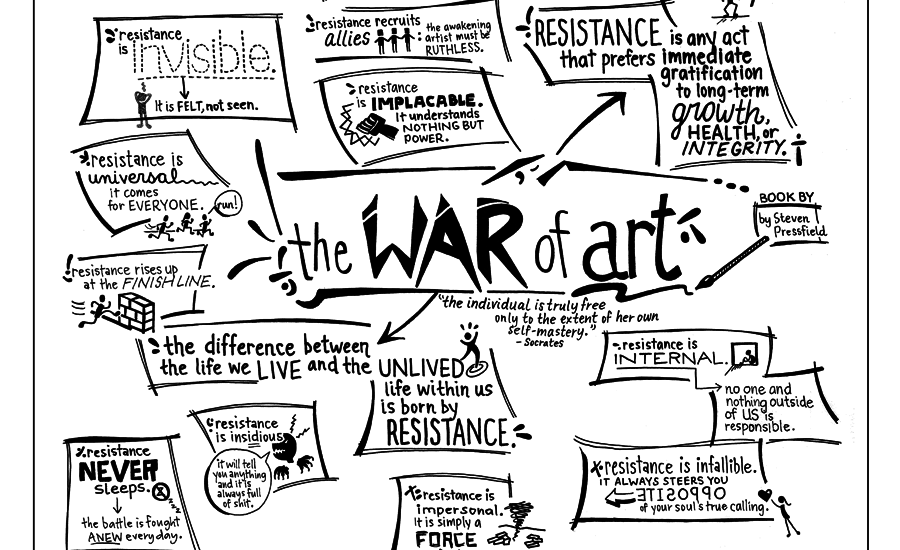Are You A True Professional?
- November 18, 2013
- Posted by: Rochelle
- Category: Running Your Business

“The most important thing about art is to work. Nothing else matters except sitting down every day and trying.” Steven Pressfield
If you struggle with creating (or releasing) your art you owe it to yourself to read “The War of Art”.
Just to be perfectly clear—when I say art, I mean creation of all sorts: developing a new business, writing your book, designing a game-changing new concept.
We are all artists.
Which means we all experience resistance.
Pressfield likens it to doing battle. And mesmerizingly articulates the essence of “turning pro”. (In fact, there is so much rich material here, he wrote a follow-up book, “Turning Pro”.
Working with artists of many stripes (and fighting my own epic battles with resistance), I can relate to every one of his attributes of the professional. Here are my top three.
Patience. This is the big one. I recognize patience when a potential client comes to me with a consistently produced body of work. They regularly produce—whatever their platform—and know that the only way to overcome resistance is to keep working. When I look to hire partners-in-crime, this is the first thing I look at. How consistent are they in the things they proclaim to value? Hint: the blog whose last entry was three years ago turns me away every time.
Seek order. For some reason, we take it on faith that creating great art requires a messy existence. Drama. Chaos even. But the opposite is true. The successful creative professional seeks order. We want our space to be welcoming, our relationships to be in good working order and all pathways clear so that the muse can enter. We embrace the routine that allows us to produce great work. Amateurs exist in total chaos—professionals thrive in order.
Act in the face of fear. Every sane human being experiences fear. But the warrior acts anyway. Hitting the “publish” button on a controversial piece. Pulling the rip chord on your big idea—book, business, workshop. I once had a client start sobbing when she first saw her new website. Certain I had committed a grievous error, I waited for her to explain. Turns out she had been able to master her fear about stepping into the public eye until seeing it in full living color. Yes, she published it anyway.
Patience. Seeking order. Acting in the face of fear. The amateur runs from these. The professional embraces them. We make up our minds and we do it. It’s our job. Until then, we’re amateurs.
Like what you see here? Head on up to that pink bar to sign up pronto and I’ll deliver my weekly insights directly to your in-box.
*Thanks to Sunni Brown, leader of the Doodle Revolution, for her “infodoodle”







My maternal grandpa always counseled me from the earliest I recall: “Be calm and cool at all times.” I was told he had a temper; he kept it in check.
Key involves maintaining focus, building in time for reflection.
Your points go to the heart of these concepts.
I never considered myself an artist until Seth Godin, one of my favorite writers for many years began writing about it in this manner.
But I have two issues holding me back using your attributes only as examples:
First, my desk and office are a mess and I never take the time needed to clean it up. It is embarrassing to me because I never had a messy desk until recently.
Second is patience. I never thought I had patience until I learned I had to wait for some of my better clients to pay me what they owed.
I am going to make a commitment today to begin working to get better at what I perceive to be my weaknesses.
Thanks guys! Ed, the way I read Pressfield’s point on patience is more about continually producing work, even when we wonder where it leads us. Consistently working at our art. I know, I never thought of myself as an artist either, but it really helps my mindset when I’m creating…